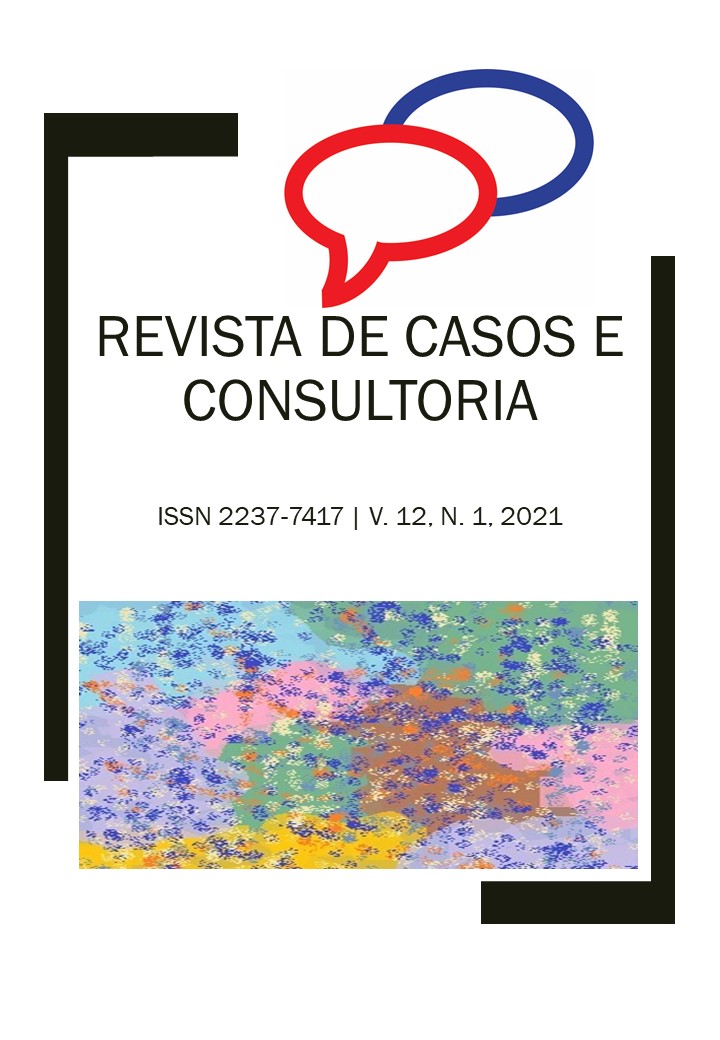Contraceptive methods: Main risks and adverse effects
Keywords:
Contraceptive methods, Efectos adversos, Conception.Abstract
Hormonal contraceptives are contraceptive methods considered reversible, they contain in their composition hormones that are produced by women and thus manage to control ovulation and hinder the fertilization process. A worrying issue regarding the use of these medications concerns the neglect to use other contraceptives that prevent the transmission of Sexually Transmitted Infections (STIs). Therefore, the present study aims to demonstrate which are the main risks and adverse effects of contraceptive methods, showing which age groups are at greatest risk, which methods are better accepted by women as well as those which are more secure. This study consists of a literature review, of a descriptive and exploratory nature, scientific studies were analyzed on the main contraceptive methods comprised in the period from 2015 to 2019 collected in the following databases: Scielo, PubMed and ScienceDirect. The results show that women using contraceptive methods had an increased risk of myocardial infarction or ischemic stroke compared to non-users, but a relative risk, which does not seem to be so high, in relation to the use of the uterine device, the same showed that the probability of perforations occurring is minimal and is generally correlated with other factors, in addition some women reported feeling that increased body weight, mood swings, breast pain, headache, abdominal pain while using contraceptives. In general, the article shows that contraceptive methods are generally safe, with some risks, but the occurrence rate is small, in addition some women have many adverse effects, which can limit adherence to contraceptive methods, since it is extremely important that the patient feels comfortable when using the medication.
Downloads
References
ALMEIDA, F.P.A., ASSIS, M.M. Efeitos colaterais e alterações fisiológicas relacionadas ao uso contínuo de anticoncepcionais hormonais orais. Revista Eletrônica Atualiza Saúde, p.85-93, 2019.
APTER, D. et al. Bleeding pattern and cycle control with estetrol-containing combined oral contraceptives: results from a phase II, randomised, dose-finding study (FIESTA). Contraception, v. 94, n. 4, p. 366-373, 2016.
APTER, D. et al. Estetrol combined with drospirenone: an oral contraceptive with high acceptability, user satisfaction, well-being and favourable body weight control. The European Journal of Contraception & Reproductive Health Care, v. 22, n. 4, p. 260-267, 2017.
BORGES, A.L.V. et al. Satisfação com o uso de métodos contraceptivos entre usuárias de unidades básicas de saúde da cidade de São Paulo. Revista Brasileira de Saúde Materno Infantil, v. 17, n. 4, p. 749-756, 2017.
BRASIL. Ministério da saúde. Anticoncepção de Emergência: perguntas e respostas para profissionais de saúde. Brasília-DF, 2011.
BRITO, M.B., NOBRE, F., VIEIRA, C.S. (2010). Contracepção hormonal e sistema cardiovascular. Sociedade Brasileira de Cardiologia, 81-89.
CORRÊA, D.A.S et al., (2017). Fatores associados ao uso contraindicado de contraceptivos orais no Brasil. Revista de Saúde Pública, v.51, 2017
SILVA CARRIAS, Daniela Teresa et al. Efeitos adversos associados a uso de contraceptivos orais em discentes. Revista da Sociedade Brasileira de Clínica Médica, v. 17, n. 3, p. 142-146, 2019.
FERREIRA, H. L. O. C. et al. Determinantes Sociais da Saúde e sua influência na escolha do método contraceptivo. Revista Brasileira de Enfermagem, v.72, n4, p.1044-1051, 2019.
HEINEMANN, K. et al. Risk of uterine perforation with levonorgestrel-releasing and copper intrauterine devices in the European Active Surveillance Study on Intrauterine Devices. Contraception, v. 91, n. 4, p. 274-279, 2015.
HUBACHER, David et al. Long-acting reversible contraceptive acceptability and unintended pregnancy among women presenting for short-acting methods: a randomized patient preference trial. American journal of obstetrics and gynecology, v. 216, n. 2, p. 101-109, 2017.
KRAMER, K. et al. Conhecimento de discentes da universidade federal da fronteira sul (uffs), campus Chapecó, sobre o modo administração e os efeitos benéficos e adversos das pílulas anticoncepcionais. Anais do SEPE. v. 8 n. 1, 2018.
KRASHIN, J. et al. Hormonal and intrauterine methods for contraception for women aged 25 years and younger. Cochrane Database of Systematic Reviews, n. 8, 2015.
MARTINELLI, Ida et al. Recurrent venous thromboembolism and abnormal uterine bleeding with anticoagulant and hormone therapy use. Blood, v. 127, n. 11, p. 1417-1425, 2016.
RIBEIRO, C.C.M. et al. Effects of different hormonal contraceptives in women's blood pressure values. Revista Brasileira de Enfermagem, Vol.71, 1453-1459, 2018.
ROACH, R. E.J et al. Combined oral contraceptives: the risk of myocardial infarction and ischemic stroke. Cochrane Database of Systematic Reviews, n. 8, 2015.
SORGI, C. M. et al. Conhecimentos, atitudes e práticas de universitárias em relação aos métodos contraceptivos reversíveis de longa duração (LARC). Medicina (Ribeirao Preto), v. 52, n. 3, p. 213-222, 2019.
ZERIHUN, Muluken Fekadie et al. Changes in body weight and blood pressure among women using Depo-Provera injection in Northwest Ethiopia. BMC research notes, v. 12, n. 1, p. 1-5, 2019.

 Português (Brasil)
Português (Brasil) English
English Español (España)
Español (España)